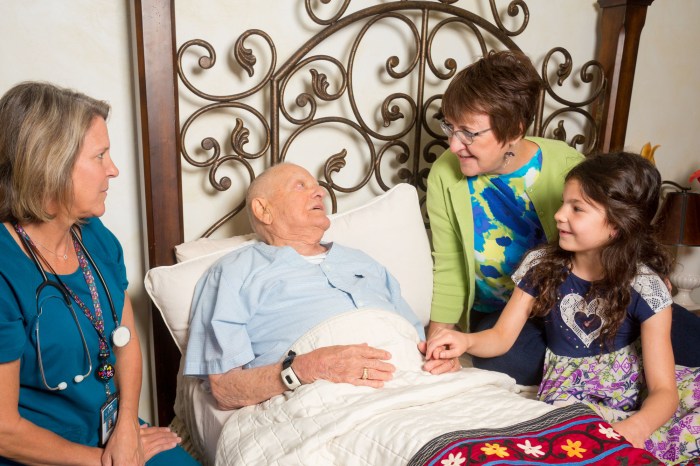As a hospice nurse is reviewing religious practices, we delve into the intricate interplay between spirituality, culture, and end-of-life care. This exploration unveils the profound impact of religious beliefs on patients and families, guiding us to provide holistic and compassionate support during their final journey.
Throughout this discourse, we will navigate the ethical considerations, cultural nuances, and interdisciplinary collaboration essential for honoring patients’ religious needs. By gaining insights into these practices, we empower hospice nurses to become beacons of comfort and guidance, ensuring that every individual’s spiritual journey is respected and fulfilled.
Religious Practices in Hospice Care

Religious practices play a significant role in the care of patients in hospice settings. Nurses must be aware of and respectful of patients’ religious beliefs and practices. Understanding and supporting religious practices can provide comfort and support to patients and their families during this challenging time.
Assessing Religious Needs
Assessing patients’ religious needs is essential for providing holistic care. Nurses can use various tools and frameworks, such as the Spiritual Assessment Guide (SAG), to identify and address patients’ spiritual and religious needs. Spiritual care professionals, such as chaplains, can also assist in this process.
Spiritual Care Interventions
Tailoring spiritual care interventions to different religious practices is crucial. Nurses can provide support and guidance through prayer, meditation, or other practices specific to the patient’s beliefs. Evidence-based practices for spiritual care in hospice include:
- Spiritual counseling
- Guided imagery
- Music therapy
“Spiritual care interventions can create a sense of peace and comfort for patients and their families, helping them cope with the challenges of end-of-life care.”
Hospice Nurse
Cultural Considerations
Cultural influences can shape religious practices and beliefs. Nurses must understand the cultural context of patients’ religious practices and provide culturally sensitive care. For example, some cultures may have specific rituals or customs related to death and dying.
Interdisciplinary Collaboration
Collaboration among healthcare professionals is essential in addressing religious needs. Hospice nurses work with physicians, social workers, chaplains, and other team members to provide comprehensive care. Interdisciplinary collaboration ensures that patients’ religious and spiritual needs are met.
Ethical Considerations
Ethical considerations are paramount in religious practices in hospice care. Nurses must balance patient autonomy with respecting religious beliefs. For example, a patient may request a specific religious ritual that conflicts with medical treatment. Nurses must navigate these dilemmas with sensitivity and compassion.
Education and Training, A hospice nurse is reviewing religious practices
Ongoing education and training are essential for hospice nurses to provide competent spiritual care. Nurses can attend workshops, conferences, and training programs to enhance their skills. Best practices include incorporating spiritual care into nursing curricula and providing resources for nurses to stay up-to-date on religious practices.
Popular Questions: A Hospice Nurse Is Reviewing Religious Practices
What are some common religious practices observed in hospice settings?
Religious practices in hospice settings may include prayer, meditation, reading sacred texts, participating in religious rituals, and seeking spiritual guidance from chaplains or religious leaders.
How can religious practices provide comfort and support to patients and families?
Religious practices can offer patients and families a sense of meaning, purpose, and connection during a difficult time. They can provide solace, reduce anxiety, and promote emotional well-being.
What is the role of hospice nurses in assessing religious needs?
Hospice nurses play a crucial role in assessing patients’ religious needs through open and sensitive communication, observation, and the use of spiritual assessment tools.


